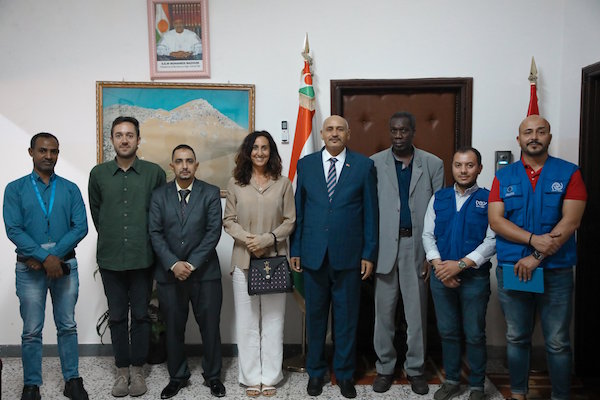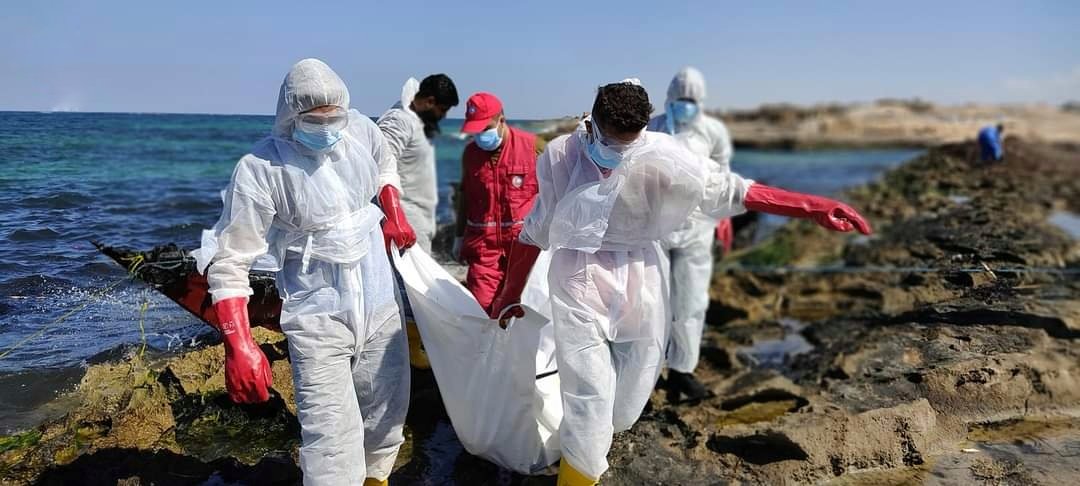NATIONAL SECURITY ISSUES
-
The Ministry of Foreign Affairs of the Government of National Unity offered its condolences to Turkey on the victims of the coal mine explosion in the north of the country, which killed about 40 people. The ministry said in a statement that it expresses the solidarity of “the State of Libya with the Republic of Turkey as a result of the explosion at a mine in Bartin province in northern Turkey.”
- The movement of the 444 militia south of Misrata to Bani Walid on Friday took place after the Turkish container ship MATILDE A docked at the Port of Misrata on Wednesday, October 12, around 1:30 pm, which continued unloading its cargo until Friday, according to the Libyan Silphium Foundation for Studies and Research. The ship MATLILDE A refused to be inspected by EU Operation IRINI in the Mediterranean, and two days after its arrival in Misrata, 444 militia moved south to Bani Walid.
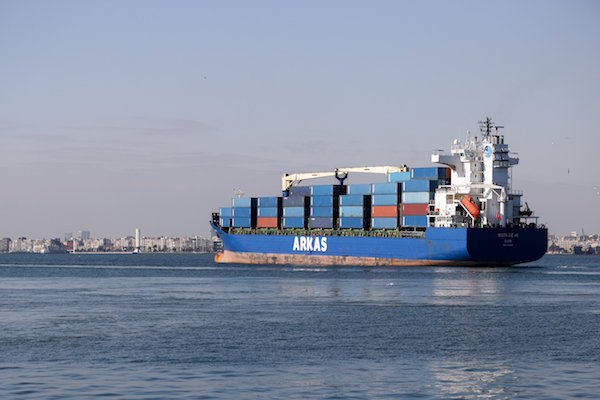
- The Tripoli-based Government of National Unity, led by outgoing prime minister Abdul Hamid Dbeibeh, have honored on Friday a man described as one of the world’s most wanted human traffickers, who was placed under sanctions by the UN Security Council for being directly involved in the sinking of migrant boats. The coastguard commander Abd al-Rahman Milad, known by his alias Bija, received a “letter of recognition and appreciation” directly from Fathallah Al-Zinni, who currently serves as minister of youth in Dbeibeh’s cabinet.

- Libyan authorities have arrested two people in connection to the killing of at least 15 migrants in Sabratah. Libya’s Public Prosecutor, Ali Zubaydah, told the press that, in addition to arresting the two suspects, security forces have raided five detention facilities where migrants are held captive the city. 159 migrants, who were detained in those facilities, were released. Security forces also confiscated equipment, boats, weapons and survival kits which they found in the facilities. Libyan rescue workers have recovered at least 15 bodies found on the coast in Sabratha including a number burned in a boat and others on the beach, a member of the Red Crescent in the city said.
-
U.S. Embassy in Libya “strongly” condemned on Sunday the reported killing of at least 15 migrants and asylum seekers in Sabratha, west of Tripoli. The Embassy called on Libyan authorities to “swiftly investigate this horrific attack, prosecute the criminals involved, and intensify efforts to combat human trafficking to the fullest extent.” Libyan rescue workers have recovered at least 15 bodies found on the coast in Sabratha including a number burned in a boat and others on the beach, a member of the Red Crescent in the city said on Friday. A security source in Sabratha said the dead people were migrants caught in a dispute between two rival groups of people smugglers in the northwest city, a major hub for illegal migration across the Mediterranean.
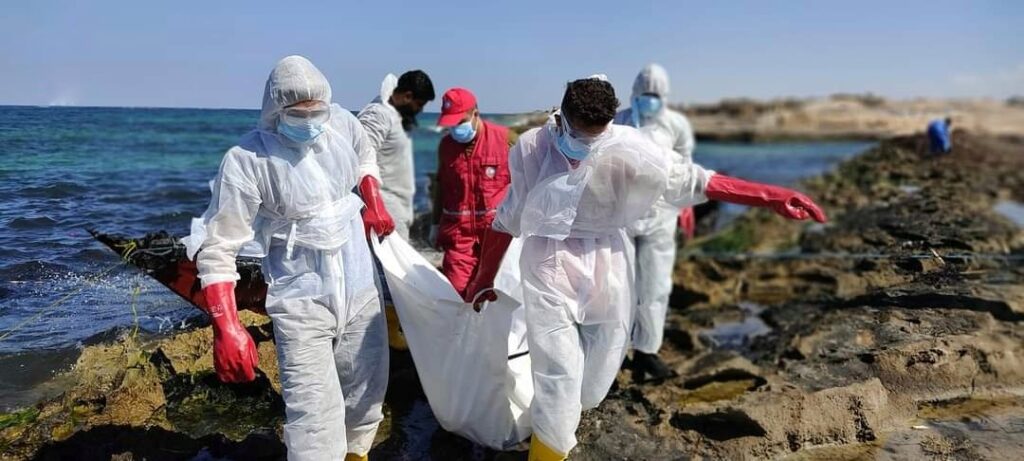
NATIONAL POLITICS AND SOCIAL ISSUES
-
UN Special Representative Abdoulaye Bathily met the Libyan outgoing Prime Minister Abdul Hamid Dabaiba in Tripoli, “who welcomed him into the country and offered to extend the Government of National Unity’s support to his good offices,” according to UN Support Mission in Libya. “They exchanged views on the situation in Libya. Dabaiba shared his analysis of options to advance peace and stability in the country,” UNSMIL tweeted.
- Italian activists gathered in front of the headquarters of the Italy-Libya Chamber of Commerce to demand revocation of their country’s 2017 memorandum with Libya. The activists held a slogan that reads “closed for violation of human rights” at the entrance gate of the Italy-Libya Chamber of Commerce.
- The General Commander of the Libyan National Army (LNA), Field Marshal Khalifa Haftar, addressed a speech on the 8th anniversary of the popular uprising of Operation Dignity in the neighborhoods of Benghazi on 15 October 2014, against terrorist groups. Haftar said in a speech to the crowds participating in the anniversary, “Let me express my happiness with these joyful images where I see officers from the armed forces with their brothers from the police officers and a group of honorable civilian brothers.”
- The European Parliament called on Libya and Turkey “not to implement any clause” included in the two countries’ bilateral agreement on hydrocarbons, which was signed in Tripoli earlier this month. This was reported in a series of recommendations about Libya, which was approved by the European Parliament’s Foreign Affairs Committee on Thursday. The recommendations are intended for the European Commission, EU member states in the Council, and EU Foreign Policy Chief Josep Borrell. According to the EU parliamentary committee, the Libya-Turkey hydrocarbons agreement “foresees illegal drilling activities in other countries’ exclusive economic zones, including those of Cyprus and Greece.”
- Creating a constitutional basis for elections and transparent management of oil revenues were at the center of talks that took place in Cairo on Friday between Speaker of Libya’s House of Representatives, Aguila Saleh, and U.S. Ambassador to Libya Richard Norland. This was reported by the American diplomat who also revealed that U.S. Assistant Secretary of State for Near Eastern Affairs, Barbara A. Leaf, was also present at the meeting.
- The U.N. Special Envoy to Libya, Abdoulaye Bathily, arrived in Tripoli on Friday to formally assume his functions and lead the U.N. Support Mission in Libya (UNSMIL). In a statement released following his arrival, the 75-year-old Senegalese diplomat said “I will lead the United Nations’ good offices and mediation efforts to reach a sustainable and peaceful Libyan-led and Libyan-owned solution. I will also oversee the work of UNSMIL.”
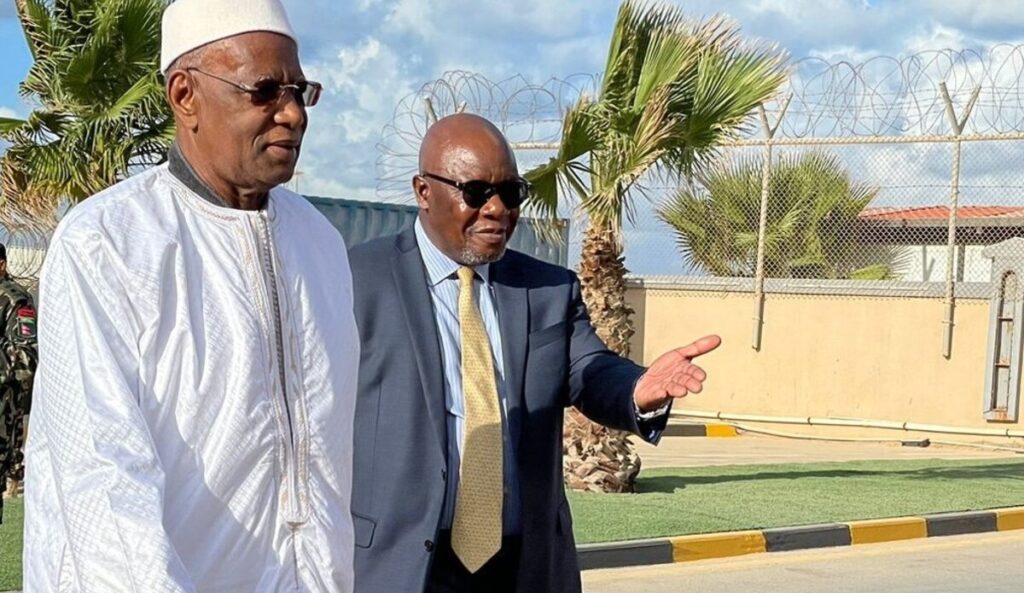
- The latest European Commission report on Turkey cites multiple reasons that led to deterioration of bilateral relations including its involvement in Libya. It points out that Turkey’s military support to Libya, including the deployment of foreign fighters on the ground, and its persistent criticism and lack of cooperation with Operation IRINI are detrimental to the EU’s effective contribution to the implementation of the UN arms embargo and have led to conflicting approaches to Libya.
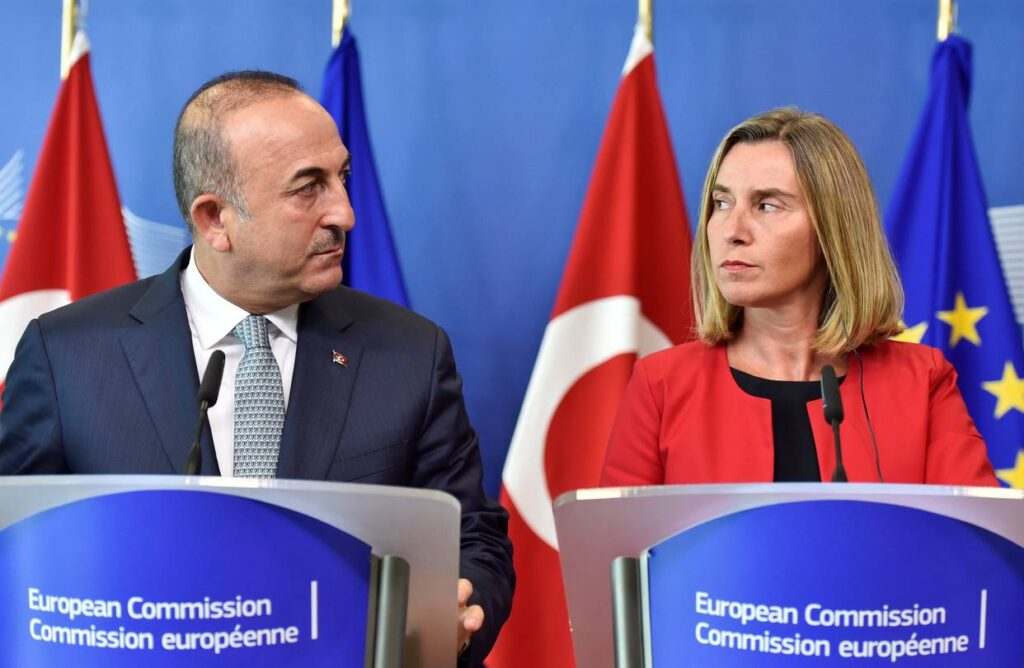
- Turkish President Recep Tayyip Erdogan said that “Turkey will begin oil and gas explorations in Libyan waters after the recent agreement with the [Dbeibah] Government of National Unity. Erdogan rejected criticism from the European Union and within Libya for seeking to expand energy cooperation with one of the country’s two rival administrations, Bloomberg reported. Erdogan said in Ankara, after a cabinet meeting, “We’ve started to work with Azerbaijan to double the capacity of Tanap, which is of critical importance,” adding, “The hydrocarbon agreement with Libya has created a new area of cooperation in the field of oil and petroleum products production in the continental part of this country.”
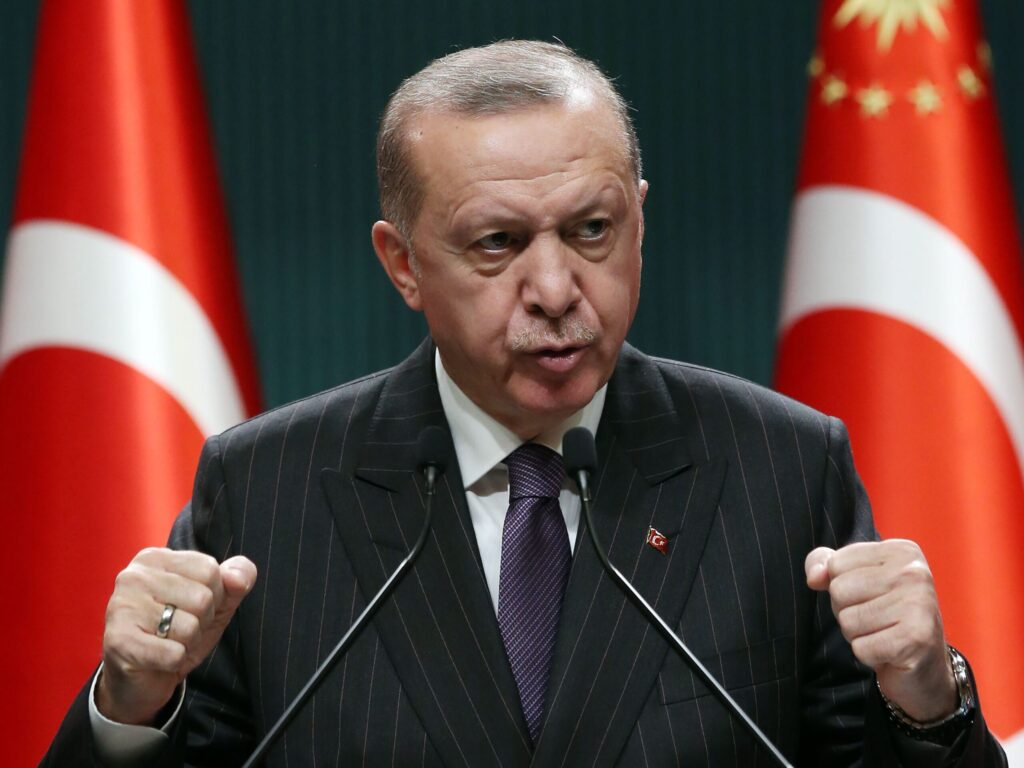
- The Libyan Civil Registry Authority has announced that the population of Libya is 7.7 million, adding that Tripoli is the most populous city, followed by Benghazi, and then Misrata. It is noteworthy that the Statistics and Census Authority had announced in the year 2020 that the population of Libya reached 7.2 million.
- Member of the Libyan Parliament (HoR) Abdel Moneim al-Orifi said that a meeting was held in the historic Parliament headquarters in al-Bayda in Cyrenaica with a delegation from the Tripoli-based High Council of State (HCS). Al-Orfi explained in press statements that this is the first meeting of its kind held in Cyrenaica between the Parliament members and the HCS members. HCS delegation is headed by the Second Deputy Omar Abushah. The Parliament member indicated that the meeting discussed the demand of 30 MPs from Cyrenaica to return to the unamended 1951 Constitution, which constitute federal system.
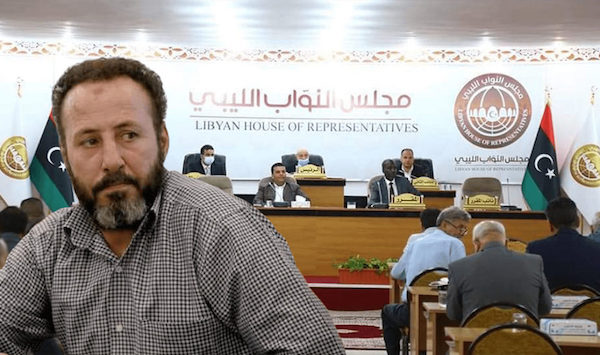
INTERNATIONAL RELATIONS
- The President of the Libyan Presidential Council (PC), Mohamed al-Menfi, left the Algerian capital, Algiers, after meeting President Abdelmadjid Tebboune, concluding a two-day visit accompanied by a number of officials. An official farewell ceremony was held for al-Menfi at Houari Boumediene International Airport in Algiers, where Prime Minister Ayman bin Abdulrahman and a number of Algerian officials.
- The Algerian President, Abdelmadjid Tebboune, received, today in Algiers, the chairman of the Libyan Presidential Council, Mohamed al-Menfi, who arrived in Algiers at “special invitation” from Tebboune, according to a statement by the Libyan council. Upon his arrival in Algiers, Menfi was also welcomed by Algerian Prime Minister Aymen Benabderrahmane. He led a top Libyan delegation which consisted of intelligence officer, General Hussein al Aib, the Libyan ambassador to Algeria, Saleh Himma, and member of the House of Representatives elected, Ziad Daghim.
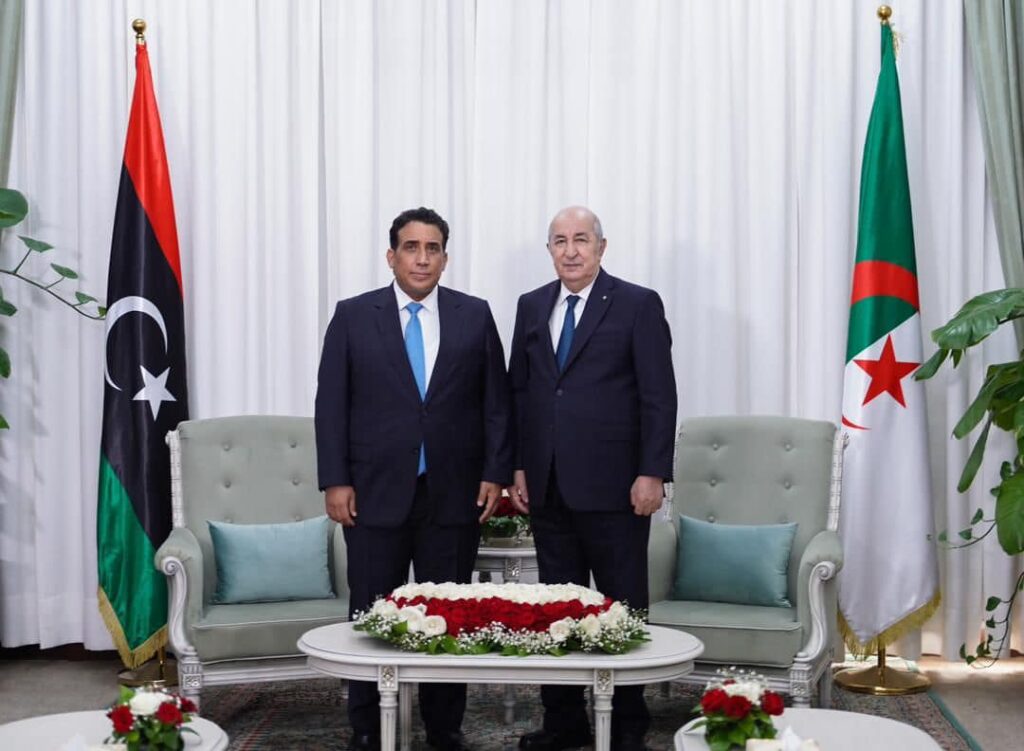
- Egyptian intelligence chief Abbas Kamel arrived today in Benghazi in eastern Libya to meet the General Commander of the Libyan National Army (LNA), Field Marshal Khalifa Haftar, according to multiple press reports. Kamel is reportedly accompanied by a high-level delegation. However, it is yet unknown what will be the focus of the bilateral talks.
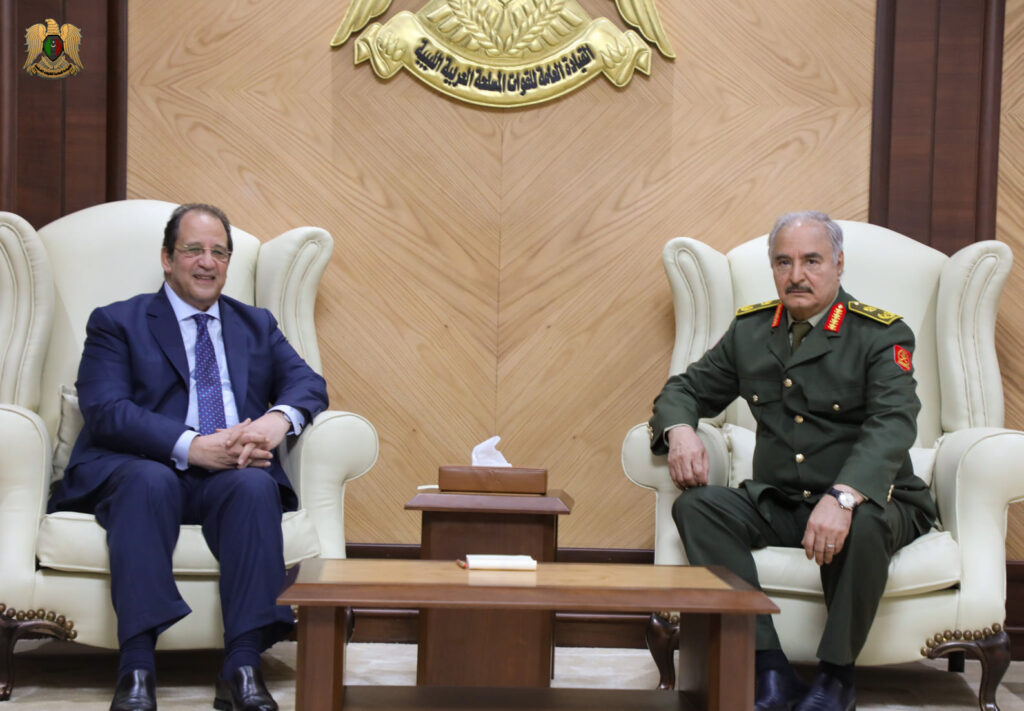
- International Organization for Migration (IOM) officials met Sunday with the Ambassador of Niger to Libya to discuss increasing support on health, education, skills development, labour, migration and Voluntary Home Return (VHR). “Meanwhile, IOM staff distributed non-food items to women households of the Nigerien community of Tripoli,” according to IOM.
